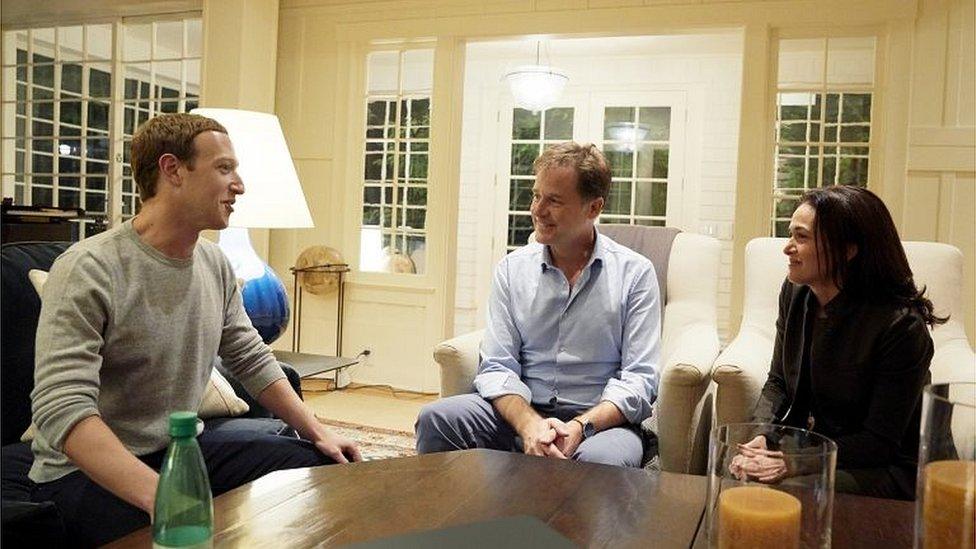Facebook: Did social network mislead MPs?
- Published

Former Deputy Prime Minister Nick Clegg has been asked to answer MPs' questions about the Facebook's earlier testimony
British MPs are taking Facebook to task over evidence appearing to contradict testimony the US tech company gave about the Cambridge Analytica scandal.
Facebook bosses told MPs they had learned users' data had been misused via a December 2015 Guardian report.
But a US watchdog has now said Facebook workers flagged the problem three months earlier.
MPs want answers by mid-August. The social network has said it will respond "in due course".
'Data misuse'
Last week, the Securities and Exchange Commission fined Facebook $100m (£82.6m) for misleading disclosures about the handling of user data.
According to the regulator's document, Facebook's advertising team had described Cambridge Analytica as a "sketchy (to say the least) data modelling company that has penetrated our market deeply".
It said the employees had asked their bosses in September 2015 to investigate "possible scraping... of Facebook user data" by the consultancy.
Now, MPs want the company to explain why senior Facebook executives insisted to MPs they had not heard about Cambridge Analytica's suspected misuse of data until December 2015.
That was when a Guardian newspaper article revealed the company had been working for US senator Ted Cruz, using data harvested from millions of Facebook accounts.
The MPs also want to know why no action was taken until 2018.
Damian Collins, who chairs the Digital, Culture, Media and Sports Committee, has written to Facebook demanding an explanation as to how the "discrepancies in evidence occurred".
"We request a response on whether the SEC complaint is accurate that employees did raise concerns about Cambridge Analytica before December 2015," his letter says.
"We also ask for clarity regarding the timeline of Facebook employees' awareness of both Cambridge Analytica and GSR [Global Science Research]'s activity and data misuse," reads the letter to Facebook's vice-president of global affairs, Nick Clegg.
Mr Collins hashtagged The Great Hack in a tweet about his intervention.
This refers to a documentary released by Netflix last week. It raises questions about Cambridge Analytica's role in President Trump's election, its ties to former White House strategist Steve Bannon, and what advice the business gave to pro-Brexit group Leave.EU.
Allow X content?
This article contains content provided by X. We ask for your permission before anything is loaded, as they may be using cookies and other technologies. You may want to read X’s cookie policy, external and privacy policy, external before accepting. To view this content choose ‘accept and continue’.
The committee also wants to know why "red flags" raised by Facebook employees were not dealt with by senior management.
Mr Collins has repeatedly called on Facebook boss Mark Zuckerberg to travel to the UK in person to explain his role the scandal.
And the DCMS committee has called on the UK government to overhaul the way political campaigning is conducted online.
Cambridge Analytica obtained the data of millions of Facebook users via an online personality quiz designed by a Cambridge University academic, Aleksander Kogan, including information about the "Facebook friends" of those who had taken part.
Facebook has agreed to pay a record $5bn to the US Federal Trade Commission to settle privacy concerns.